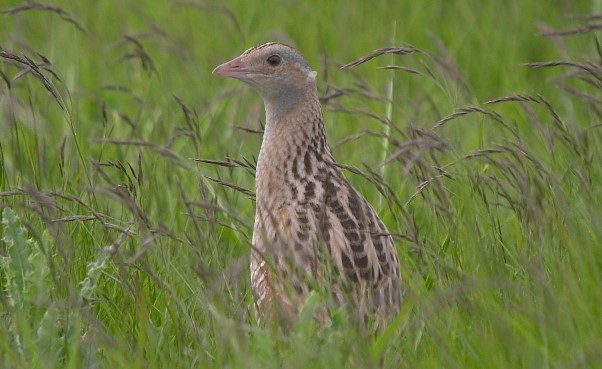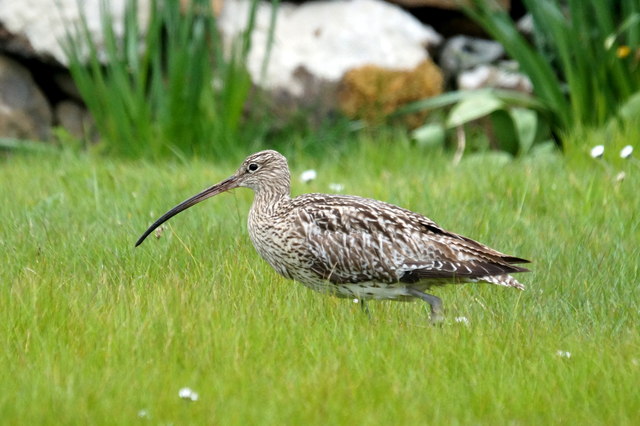Ireland failing to protect important habitats and species, study finds

April 25th, 2018
The Irish state is failing in its duty to fully implement European Directives vital to protect numerous threatened species and habitats on our island, a new report has found.
The report from BirdLife Europe, WWF, European Environmental Bureau and Friends of the Earth Europe gave 18 EU states a scorecard for their performance in implementing the Birds and Habitats Directives to protect Europe’s most precious natural areas, wildlife, and habitats.
The findings of the report come just one year after the European Commission introduced an ‘Action Plan’ that calls for all EU members to better implement nature protection rules.
While the report finds that Ireland is doing well in transposing the Directives, it stresses that our Government is failing to fully implement them and protect threatened species and habitats.
The information in the Irish assessment is based on expert analysis from BirdWatch Ireland, Irish Whale and Dolphin Group, Irish Wildlife Trust, Coastwatch, Bat Conservation Ireland and An Taisce.
The report finds that we performing very poorly over species protection and engagement with the public and stakeholders such as conservation groups.
Actions plans to safeguard the majority of our island’s protected species are “out of date now”, according to the report, while others are being implemented “in a piecemeal fashion”.

Corncrake Crex crex, Ballaugh Curragh, Isle of Man Photo: Isle of Man Government
There is no evidence, for example, that the 2010 draft catchment action plans for the threatened freshwater pearl mussel, are being implemented in a clear manner.
Species monitoring is also very poor, the report states, with long-term data “lacking” for over half of bird species assessed in 2014, while some habitat types, uplands in particular, also lack monitoring.
The report calls for a national action plan to be developed to tackle invasive species as at present there are no identified coordinated national management measures in place, with invasive species in the marine environment especially “potentially problematic”.
The report warns that the state is also failing to fully designate, establish and connect sites to form the Natura 2000 network of protected areas on land and at sea.
The special protection areas for the endangered Corncrake, for example, are still yet to be designated, while other established sites are poorly managed, the report states.
Forty-five management plans were drawn up some years ago, but have yet to be officially adopted or implemented, while there are no plans at all for some National Parks, the report states.
The report adds that the state is also failing to ensure that projects likely to affect Natura 2000 sites are subject to Appropriate Assessment to ensure that there is no deterioration of habitats and disturbance to species.
Natura 2000 is a network of core breeding and resting sites for rare and threatened species and some rare natural habitat types which are protected in their own right.

Eurasian Curlew (Numenius arquata) Photo: Mike Pennington
It stretches over all 28 EU countries and covers 18 per cent of the EU’s land area and almost 6 per cent of its marine territory.
Ireland’s new Biodiversity Action Plan 2017-2021 calls for the “Complete designation process for Special Areas of Conservation (SACs) and Special Protection Areas (SPAs), in particular, for marine coastal and offshore SPAs”.
The Irish State is also dragging its feet over habitats and species monitoring, and is not providing adequate funding to cover Natura 2000 needs, the report adds.
The report warns that the National Parks and Wildlife Service is “chronically underfunded” and has insufficient staffing numbers working to protect and enhance Nature 2000 sites.
Yesterday, a coalition of environmental NGOs and concerned citizens rallied outside Leinster House calling on the Government to halt the rollback of Ireland’s nature laws proposed in the Heritage Bill. [9]
According to Environmental Pillar spokesperson, Oonagh Duggan, the failures stem from a “lack of political will” in Ireland to protect our threatened species and habitats. This is “condemning” Irish nature to loss and decline, she added.
“The report shows that the Irish government is sacrificing this natural heritage and letting down the Irish people who take great enjoyment from nature.
“Significant investment and enforcement of the laws that protect our wildlife is urgently needed if we are to go from red to green in species and site protection,” she warned.
[x_author title=”About the Author”]







